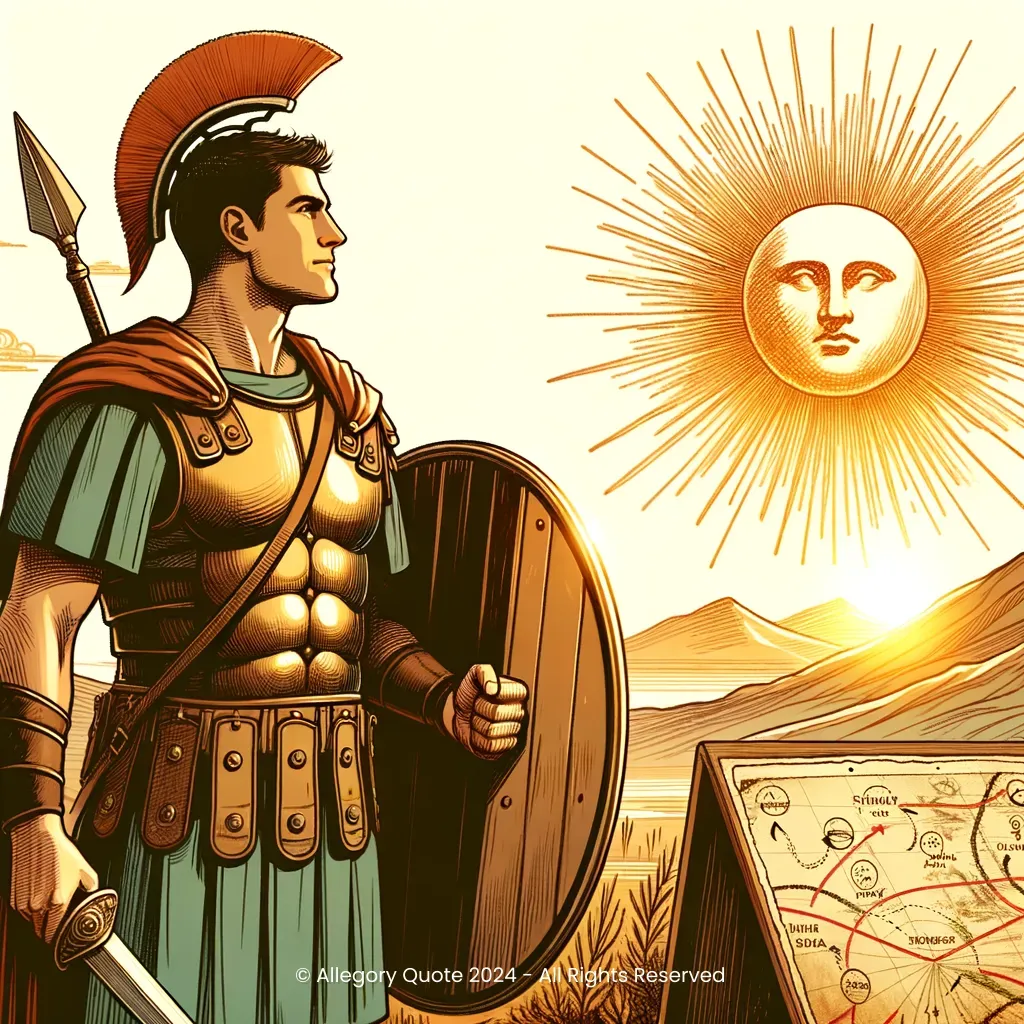Praemonitus, praemunitus

0
0
0
0
- Meaning
- The phrase "Praemonitus, praemunitus" means that being warned or aware of something in advance helps a person to prepare adequately to face the situation. It stems from ancient wisdom that values foresight and planning as a way to avoid unpleasant surprises and be better equipped to face obstacles. This concept is widely used in various fields of human knowledge, from military strategies to risk management in companies.
- Allegory
- The Roman warrior symbolizes preparation and strength. The shield represents the security and defense that come from being prepared. The horizon and rising sun suggest new opportunities and the importance of long-term vision. The map on the ground shows strategy and planning, reinforcing the idea that detailed preparation helps to face any challenges. The warm colors of the sun and the sober tones of the warrior and the setting balance the image, highlighting the message that both preparation and hope are essential.
- Applicability
- This teaching can be applied personally by maintaining a proactive attitude towards life. Being always informed and prepared allows one to face challenges with less stress and more efficiency. In everyday life, this can mean anything from checking the weather forecast before leaving home to making a detailed plan before starting an important project. In areas such as security, business, and even education, being forewarned allows for identifying potential problems and seeking solutions before they become critical.
- Impact
- The impact of this phrase has been vast in many cultures and eras. The idea that preparation is key to success and security has resonated through the ages, reinforcing the importance of education, planning, and foresight. It is especially relevant in military and security contexts but also applies to business, health, and even personal life.
- Historical Context
- The historical context of this proverb dates back to the Roman period when Latin culture was predominant. Phrases like this were common in military, philosophical, and political texts that valued strategic preparation and the wisdom of anticipating problems. Although it is difficult to determine the first time it was used, its context clearly highlights the priority of the time on strategy and planning.
- Criticisms
- A potential criticism of this proverb could come from the perspective that it is not always possible to foresee all eventualities or be entirely prepared for everything. Some people might argue that flexibility and the ability to improvise are as important as preparation. Additionally, excessive emphasis on preparation can lead to anxiety or analysis paralysis, where one is so concerned with being ready that they end up not taking action.
- Variations
- There are variations of this proverb in different cultures. For example, in English, the phrase "Forewarned is forearmed" directly expresses this philosophy. While the essence remains the same, different cultures may interpret and apply the concept slightly differently, reflecting their own priorities and philosophies about life and foresight.
-

Power tends to corrupt, and absolute power corrupts absolutely.
-

La ponctuality is the politeness of kings.
-

Measure twice, cut once.
-

In the midst of chaos, there is also opportunity.
-

An ounce of prevention is worth a pound of cure.
-

Beauty is in the eye of the beholder.
-

The unexamined life is not worth living.
-

I know that I know nothing.
-

Fortune favors the brave.
-

Ubi bene, ibi patria.
No Comments